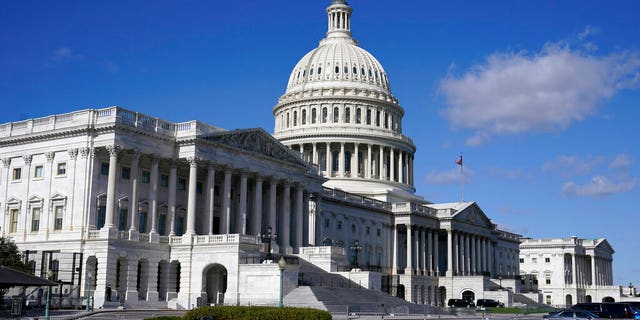

A hearing by the House Ways and Means Committee last month reviewed the grim results. Dubbed "the greatest theft of taxpayer dollars" in history by Chairman Jason Smith, the hearing included testimony from the Inspector General of the US Department of Labor, Larry Turner. Turner said the "low end" estimate for unemployment benefit misspending during the pandemic is currently $191 billion—including both fraud and erroneous payments. A recent GAO report conservatively estimates that losses to fraud alone total at least $60 billion. Both figures are sure to rise, and private sector experts estimate the taxpayer rip-off totals an astonishing $400 billion.
Both state and federal benefits are paid out by state agencies. Democrats especially complain those agencies have been underfunded—and they are right. Since the 1990s, under both Republican and Democratic presidents and congressional majorities, real spending on administering unemployment benefits has fallen steadily. Those same state agencies now bear the responsibility—and expense—of recovering pandemic misspending. Yet under current rules, if states recover misspent federal funds, they must return 100 percent of what they recover to the federal government. That gives states no incentive to go after the bulk of pandemic fraud.
GOP TARGETS BILLIONS IN COVID FRAUD WITH NEW BILL
Democrats argue their $1.9 trillion March 2021 American Rescue Plan included $2 billion for the Department of Labor nominally to help states address fraud. Yet two years later those funds haven’t all been deployed, and $260 million is devoted to "promoting equity" in future benefits. President Biden is now doubling down on that Washington-driven approach, proposing $1.6 billion in new federal funds. His proposal includes $600 million for investigations and prosecutions, another $600 million on fraud prevention, and an additional $400 million for victims of fraud.
But that does nothing to encourage states to act. And if throwing federal money at this problem would solve it, you would think that the first $2 billion would have done the trick. But so far that approach has yielded only pennies on the dollar in terms of recoveries. It’s now over 18 months since federal pandemic benefits expired, yet only $5 billion of possibly $400 billion in misspending has been recovered.
Republicans are proposing a markedly different approach. The House Ways and Means Committee recently approved H.R. 1163, the Protecting Taxpayers and Victims of Unemployment Fraud Act. The legislation would prevent further fraud through better data matching and identity and income verification, closing loopholes left wide open during the pandemic. But the legislation’s main focus is on encouraging states to recover pandemic benefits lost to fraud. As the committee describes, the legislation "allows states to retain 25 percent of fraudulent federal funds recovered," reversing current policies that offer states "little incentive to pursue costly investigations and prosecutions" involving federal funds.

Congressional building Capitol Hill (AP Photo/Patrick Semansky, File)
States would use their share of recovered funds to offset their costs, improve program integrity, and modernize the systems that left benefits vulnerable to fraud in the first place. Recognizing program misspending often exceeded 10 percent before the pandemic, the bill also allows states to devote five percent of future recoveries to those purposes.
The clock is ticking on getting misspent pandemic funds back, so the stakes for this legislation are high. Congress should approve it quickly. Doing so promises a far better return for taxpayers than doing nothing, or just throwing more money at the current Washington-centric approach that so far has failed to recover tens, or possibly even hundreds, of billions of dollars lost to pandemic fraud.
